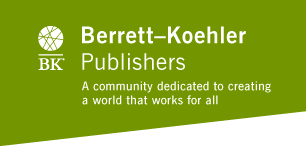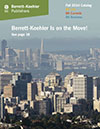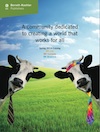- Open Space Technology is an effective, economical, fast, and easily repeatable strategy for organizing meetings of between 5 and 1,000 participants
- The originator of the Open Space Technology process explores what it is and how it developed as a process for meeting management
At the start of this thoughtful and revelatory book, Harrison Owen relates the story of how he was lunching with a senior official of the American Society for Training and Development, who observed that if what Owen had just told him about Open Space Technology (OST) was true, then "95% of what we are currently doing does not need to be done."
OST is strategy for organizing meetings that is radical, revolutionary, and deceptively simple. Expanding Our Now is an exploration of what OST is, how it developed as a process for meeting management, and how and why it works all over the world, for groups of all sizes dealing with a vast range of issues.
To be published simultaneously with Open Space Technology: A User's Guide, -- a companion volume which details methods for implementing an Open Space event -- Expanding Our Now provides historical background, with case studies and delves into the questions of why and how Open Space works.
Owen makes a compelling case that OST can move organizations to higher levels of performance, without elaborate training or professional facilitators. By focusing on 'Now' -- this present moment -- perception is expanded so that, for example, AT&T was able to accomplish 10 months work in a matter of 2 days.
'Now' is the heart of the matter. When Now gets big, time and space open up for doing what is needed. In the experience of Owen and thousands of people around the world who have used this technology successfully, OST expands 'Now' . Here he offers numerous successful case studies from corporations (such as Boeing and AT&T), community service organizations, and even countries (Canada) to demonstrate the power of 'Now'.
While Open Space violates many of the traditional principles of meeting (and organizational) management, it is remarkably effective. Owen challenges the idea that anyone can actually control a closed system, suggesting that in reality all systems are open, and OST simply acknowledges and takes full advantage of that reality.
One of Owen's first encounters with Open Space -- at a multi-lingual, multi-cultural, multi-national meeting focused on organizational learning -- sets the stage for Expanding Our Now, followed by a discussion of the "Four Principles and One Law" that characterize OST:
The Four Principles:
1. Whoever comes are the right people. It is not how many people show up, their title or position, but rather the fact that they shared a passion about the issue(s) at hand.
2. Whatever happens is the only thing that could have. This principle reminds participants not to focus on what might have been, could have been, or should have been, and anchors our regard firmly in what is-right now.
3. Whenever it starts in the right time. When it comes to creative interchange and spirited inquiry, the clock is not the final arbiter. Things start when they are ready. Not before, and not later.
4. When it's over it's over. Don't waste time when the moment has passed. Move on to something useful.
The One Law:
The law of two feet. If at any time you find that you are neither contributing nor learning, use your two feet and move.
Through the story of the evolution of Open Space, Owen shows how one person can take any group ranging in size from 5 - 1000 people from the edge of confusion to productive work in just over 15 minutes, with no advance agenda preparation required.
Anyone concerned with boosting the functional levels of their organization, including internal and external organization development and human resource professionals in business, government, educational, community, and not-for-profit organizations will find Expanding Our Now a provocative and useful exploration of how we meet and how to take much more from that interaction.
 0 items in cart
0 items in cart









